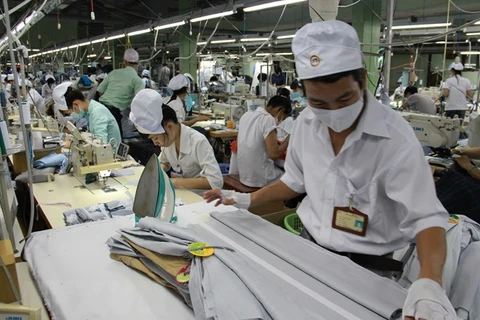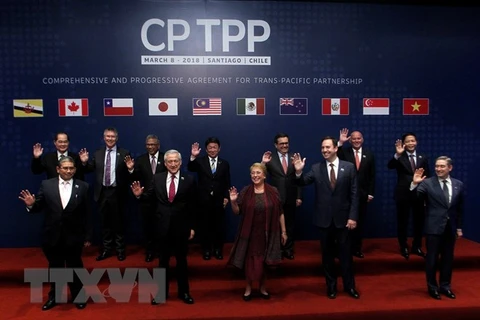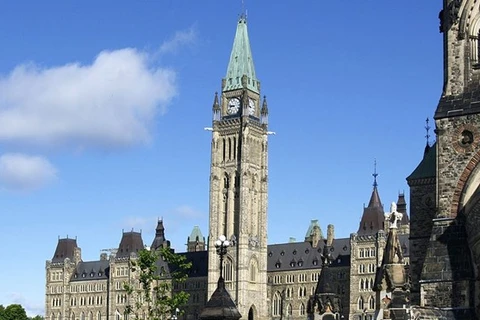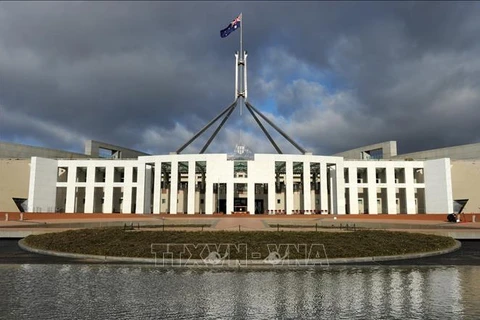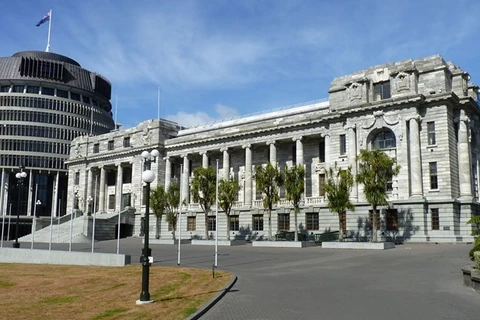HCM City (VNA) – Vietnamese businesses should actively prepare the best conditions to take the advantage of preferences to be brought by the Comprehensive and Progressive Agreement for Trans Pacific Partnership (CPTPP), said experts at a seminar in Ho Chi Minh City on October 25.
Speaking at a meeting titled "CPTPP: Opportunities and Challenges for Vietnam ", Pham Quynh Mai, deputy head of the Ministry of Industry and Trade (MoIT)’s Multilateral Trade Policy Department, said the CPTPP covers a market of nearly 500 million people and accounts for 13.5 percent of global GDP.
The CPTPP is a strategic free trade agreement (FTA) for Vietnam and its business community as the deal will create momentum for market opening, investment development and establishment of free trade relations with many new countries like Canada, Mexico and Peru, she said.
Therefore, the trade pact is expected to help Vietnam restructure its export-import market as well as reduce trade deficit and its dependence on traditional markets such as ASEAN, China and the Republic of Korea.
The CPTPP will also generate a driving force for the Vietnamese Government to speed up administrative reform, perfect legal-institutional frameworks and create a clearer and more transparent business and investment environment for enterprises, she added.
Tran Thi Thu Huyen, head of the Ministry of Finance’s International Cooperation Agency, said under the CPTPP average trade-weighted tariffs would drop from 1.7 percent to 0.2 percent for Vietnamese exporters.
Non-tariff measures are predicted to reduce by 3.6 percentage points in terms of tariff equivalence, she said.
As market access increases and tariff commitments take effect, sectors such as textiles, footwear, electronics, and equipment would have an opportunity to increase their exports to other member economies, she said.
Trinh Thi Thu Hien of the MoIT’s Export-Import Department said with strict rules of origin, Vietnam would have to develop supporting industries to benefit from the trade deal.
Tran Thi Thanh Thuy of the Multilateral Trade Policy Department said Việt Nam planned to improve the investment environment and protect intellectual property rights to attract investors.
Government institutions and administrative systems also needed to be reformed to take advantage of the CPTPP, she said.
Experts said the effort could be expensive in the short term, but in the long run would help Vietnamese companies take full advantage of such trade agreements.
It is also necessary for Vietnam to focus on small and medium-sized enterprises (SMEs) and reform State-owned companies.
SMEs account for a majority of the economy and labour market, and the Government should support them if it wants the SMEs to align themselves further with the global supply chains.
Vietnam is expected to fulfil its trade liberalisation commitments and ratify the CPTPP within this year.
The CPTPP would come into effect 60 days after at least six member countries ratify the trade pact.
The trade agreement was signed last March following a period of turbulence caused by the departure of the US.
It is designed as an open free trade agreement, enabling economies to join by accepting its standards and signing agreements with its member economies.-VNA

